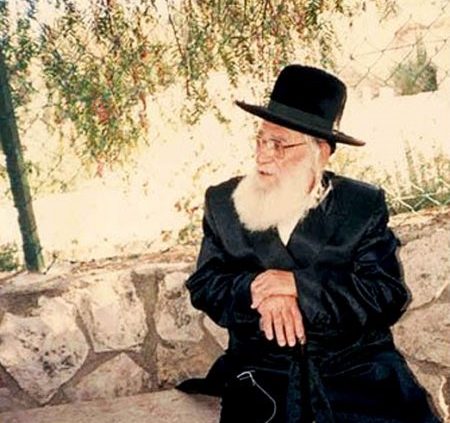WEDNESDAY PRAYER: HOCHMA-MAIN READING FOR THIS WEEK – FOR MITZVOT – The Tree of Knowledge of Good and Evil

READING: SUNSET TUESDAY
Main Reading for KABBALISTIC PRAYER this week, today with THE READING FOR MITZVOT.
ARVUT OF: Sheridan Moreton-Judd.

The Tree of Knowledge of Good and Evil
January 15, 1972
–by Rabbi Baruch Shalom HaLevi Ashlag (Rabash)
It is written in The Zohar, “The tree of knowledge of good and evil, if they are rewarded—good, if they are not rewarded—bad.”
It is explained in the Sulam Commentary that if he is rewarded, Midat ha Din [quality of judgment]—the unmitigated Behina Dalet—is concealed, and Midat ha Rachamim [quality of mercy] is revealed; that is, Malchut that is mitigated in Midat ha Rachamim is revealed. But if he is not rewarded, it is to the contrary.
We should understand the meaning of “disclosure” and “concealment.” It is known that man consists of virtues and good qualities, as well as of bad qualities. This is because “There is not a righteous man on earth who will do good and will not sin.”
In other words, there is always a deficiency in a person, something more to correct; otherwise, there is nothing more for him to do in the world.
It is as two people who unite with each other and there is friendship between them, and suddenly one of them hears that the other did something bad to him. He immediately moves away from him and cannot look at him or stand near his friend. But afterwards they make up.
Our sages cautioned, “Do not appease your friend while he is angry.” The question is “Why?” During his anger, he sees his friend’s fault and cannot forgive him anyway, since his friend’s fault is disclosed and his friend’s good qualities—for which he chose him as a friend—are now covered and only his friend’s fault is revealed. Thus, how can he speak to someone who is bad?
But after some time, when he forgets the harm that his friend caused him, he can rediscover his friend’s good qualities and conceal his friend’s bad qualities, meaning revive the sensation of his friend’s good qualities.
Naturally, when not giving power and sustenance to his friend’s bad qualities, they are pushed aside and concealed. This is because when speaking of something, the speech gives strength and livelihood to the thing being discussed. Hence, when the anger is forgotten, meaning when the sorrow that his friend caused him loses its sting, it is possible to begin to speak of the pleasure that he received from his friend’s good qualities.
This picture is better sensed between a husband and his wife. At times, they are in such disagreement that they wish to part from one another. But afterwards they make up. The question is, “What about the bad things that happened between them while they were quarrelling? Have they passed away from the world?”
Indeed, we must say that they concealed the reasons, meaning the bad qualities that each saw in the other, and now, during peace, each of them remembers only the good qualities between them, the virtues for which the match between them was made.
But even then, if someone from the family came and began to speak to the man or the woman and show the other’s faults, he would give power and vitality to things that they suppress and conceal, and he would expose them. In that state, one can cause separation between them.
Similarly, between two friends, if a third person comes and begins to show one of the friends the faults and drawbacks of his friend by speaking of things that are concealed in them, he would give them power and vitality, and that third person would cause separation between them.
And perhaps this is the reason why slander is forbidden even when it is true, since it discloses things that were previously hidden. It causes the opposite—conceals the virtues and discloses his friend’s faults—thus causing separation and hatred between them. And although everything he says is true, the reason is as was said above—that it all depends on what is revealed and what is concealed.
It is the same between man and the Creator. While man’s evil is covered and a person considers himself virtuous, he feels qualified for engagement in Torah and Mitzvot [commandments/good deeds], since he is worthy of ascending in degree. But when it is to the contrary, and his virtues are covered and only his drawbacks are disclosed, he cannot engage in Torah and Mitzvot because he feels that he is unfit for anything.
Thus, he will at least enjoy this world like a beast, since he cannot be a human being. Baal HaSulam said about it that usually, as long as one engages in Torah and Mitzvot, he feels his baseness, and when he engages in corporeal matters, he doesn’t feel any lowness.
But it should have been to the contrary—while engaging in corporeal matters, he should feel his lowness and naturally do everything without any liveliness, and while engaging in Torah and Mitzvot, he will regard himself as whole. Indeed, it is the same issue as we mentioned above.
 HALF REDUCTION OF FLOW IN THE INNER LEFT COURT FOR GREATER DISCLOSURE OF THE UPPER FORCE
HALF REDUCTION OF FLOW IN THE INNER LEFT COURT FOR GREATER DISCLOSURE OF THE UPPER FORCE WEDNESDAY PRAYER: KETER-SHACHARIT שַחֲרִית MORNING PRAYER
WEDNESDAY PRAYER: KETER-SHACHARIT שַחֲרִית MORNING PRAYER WEDNESDAY PRAYER: KETER-TIKKUN CHATZOT תקון חצות-TIKKUN RACHEL & TIKKUN LEAH
WEDNESDAY PRAYER: KETER-TIKKUN CHATZOT תקון חצות-TIKKUN RACHEL & TIKKUN LEAH